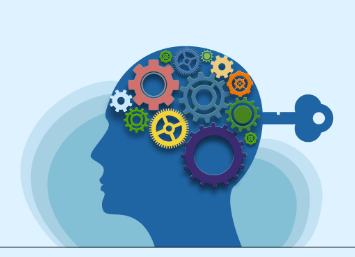This type of evidence-based treatment is usually conducted on an individual basis usually over the course of one year. It usually takes place in outpatient therapy as the person is not confined to a facility so as to undergo the treatment process. This treatment approach aims at helping a patient to change the thoughts and behaviors that drive them to self-starving and abnormal eating habits. Cognitive-behavioral treatment for anorexia nervosa is based on two core assumptions about the disorder; the first is that anorexia nervosa develops as a mechanism for coping with adverse experiences associated with developmental transitions and the second assumption is that food restriction and self-starvation become entrenched patterns independent of the issues that provoked them (Kleifield, Wagner & Halmi 1996). Cognitive-behavioral treatment mainly focuses on helping the patient to not only achieve a normal pattern of eating but also on maintaining it. The treatment program involved is usually approached following the two assumptions mentioned above.
The first pathway of approaching this treatment mainly focuses on behavioral change of eating patterns exhibited by the patient. The rational cognitive treatment to be provided is presented to the sufferer so that they are aware of what is to happen. It is crucial for the person to be advised on how to restore normal nutritional and weight gaining habits in their life. The amount of food taken by the patient is gradually increased from the small and insufficient amount they have been consuming. This aims to replace dieting with normal eating. For instance, a patient is required to have three meals in addition to two snacks per day. The patient, however, has control to decide what they wish to eat as long as it equals to a healthy meal. Meal planning is usually highly encouraged so as to give more control to the person and to psychologically prepare them. The key to a successful treatment program is the use of motivation to help patients strive to change and recover from the eating disorder. Forcing a person to make changes is often met with resistance and ends up being frustrating and unsuccessful. At this point, binge eating and vomiting are highly interrupted as this is a common trait found in anorexia nervosa sufferers. For instance, when the person consumes a large amount of food, they often induce vomiting so as to get the food out of their system. It also involves the gradual exposure of patients to the foods which they fear consuming. Changes in eating behaviors result in the steady gain of weight in patients and significantly reduce the eating disorder. At this point, the most ideal level of family assistance and involvement is introduced. Family members can provide an invaluable support system to their loved one giving them more motivation in their often-daunting journey of recovery from the eating disorder. (Psychology Homework Help)
The second pathway involves focusing on life stresses that lead to anorectic behavior used as a stress coping mechanism. The main focus is here is building a positive alliance of a therapeutic relationship with the sufferer. This enables the patient to be cooperative during the treatment process. Education is an integral part of the treatment intended to create awareness and teach the persons suffering from anorexia nervosa the warning signs and consequences of the eating disorder. Many of the people suffering from eating disorders usually believe that nothing is wrong with them and they often defend their unhealthy eating habits. Lack of knowledge and the right information can make them even more vulnerable to the illness. Techniques are discussed on how to enhance new and healthy problem-solving skills. Dysfunctional thoughts and unhealthy thinking patterns are identified and addressed. The most appropriate cognitive restructuring skills are then developed to assist the person to modify their self-concept; that is the beliefs they hold about themselves and the responses of other people. The main thing stressed upon is usually skills training and education that aid the person to initiate a healing process from their disorder by better understanding and accepting themselves. Self-ideal disparities are usually assessed prior to and following treatment to monitor any changes. Continued progress is monitored and reviewed to ensure that the treatment is successfully working for the individual. The warning signs of a possible relapse are reviewed and the guidelines for preventing relapse are also presented, particularly in the final stage.
Interpersonal psychotherapy
Interpersonal psychotherapy treatment was initially used for sole treatment of adults with eating disorders but is proving to be applicable to children and adolescents as well. Interpersonal issues are usually a common trait in patients suffering from eating disorders. They usually suffer from low self-esteem and social withdrawals as a result of their disorder. Many of the people suffering from anorexia nervosa are usually very secretive about the illness. This form of treatment mainly focuses on addressing these issues so as to remove the factors that cause patients to maintain their eating disorders. The extreme concerns over shape and weight when it comes to eating habits and patterns usually have negative impacts on intimate relationships. For instance, a person with low self-esteem usually finds it difficult to form relationships due to fear of rejection and they may turn to certain unhealthy eating habits to cope with such stress. Interpersonal psychotherapy for eating disorders closely resembles the Interpersonal psychotherapy usually offered for depression and it mainly focuses on current interpersonal issues as it is quite suitable for helping patients to address the interpersonal difficulties which appear to maintain the eating disorders (Murphy et al 2012). This type of treatment mainly focuses on improving social judgments of patients by addressing a person’s relationships and encouraging them to adopt healthy skills to overcome their fears and stresses.
This type of treatment usually encourages an individual to adapt to the interpersonal circumstances encountered in their lives. However, it highly refrains from any attempts to change the features of the individual’s personality. Since this treatment is short-term, therapy is planned provided in an organized manner to help the patient deal with the interpersonal struggles pushing them to make unhealthy eating decisions. Poor interpersonal abilities to form connections often create tension and anxiety which are underlying factors that may fuel the eating disorder. Family therapy is often a key feature of this treatment as dysfunctional patterns of communication within a household can be an underlying cause of an eating disorder. Family therapy is therefore encouraged to address family interpersonal issues so as to help the individual to move forward as well as get the support they need to pull through and successfully recover. This treatment program can also be used with a combination of other psychotherapy treatment forms such as Cognitive-Behavioural therapy to ensure the successful and total recovery of an individual.
Overall, eating disorders are becoming a rampant and concerning issue among many adolescents and young women in many parts of the world. Biochemistry, psychological and cultural factors are some of the underlying factors causing and fueling eating disorders such as anorexia nervosa which is regarded as one of the most deadly psychiatric disorder. However, individuals suffering from anorexia nervosa are not totally hopeless as they can be successfully helped to recover by undergoing the treatment programs discussed above. It is quite essential to seek immediate treatment once the symptoms of an eating disorder are spotted. (You can buy a similar paper from the link below https://buyargumentativeessay.net/ Custom essay writing)











